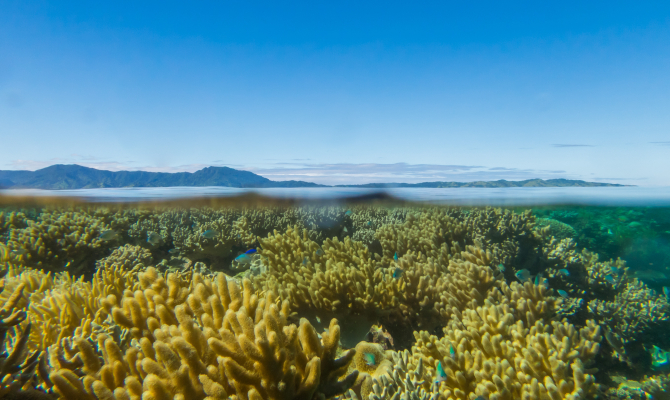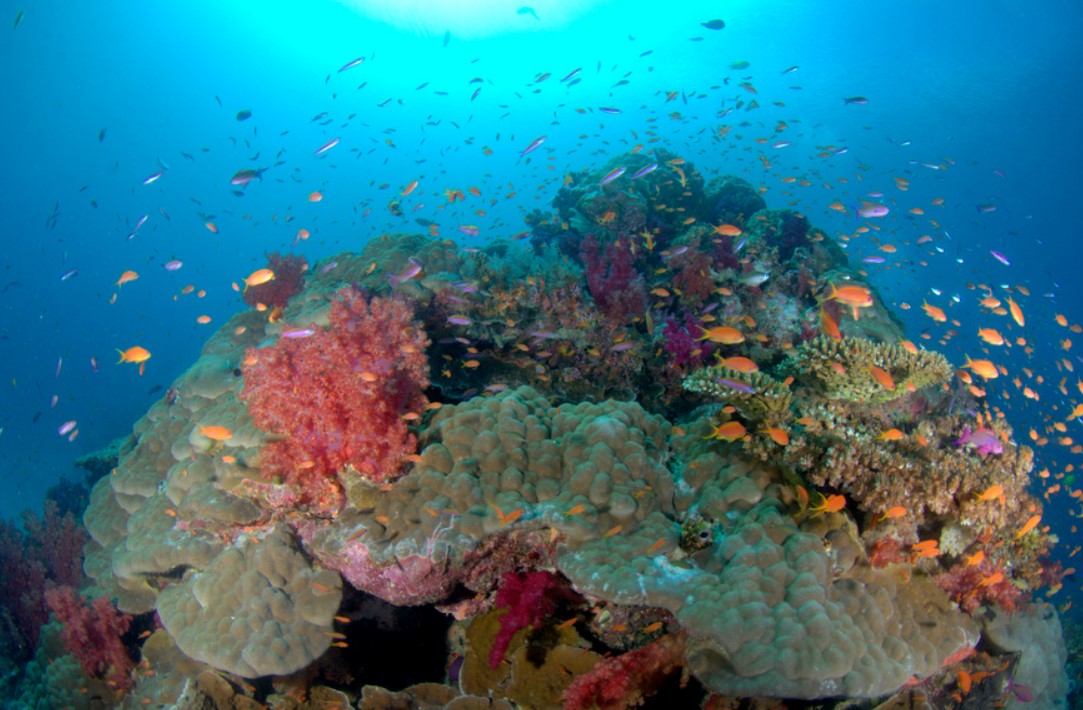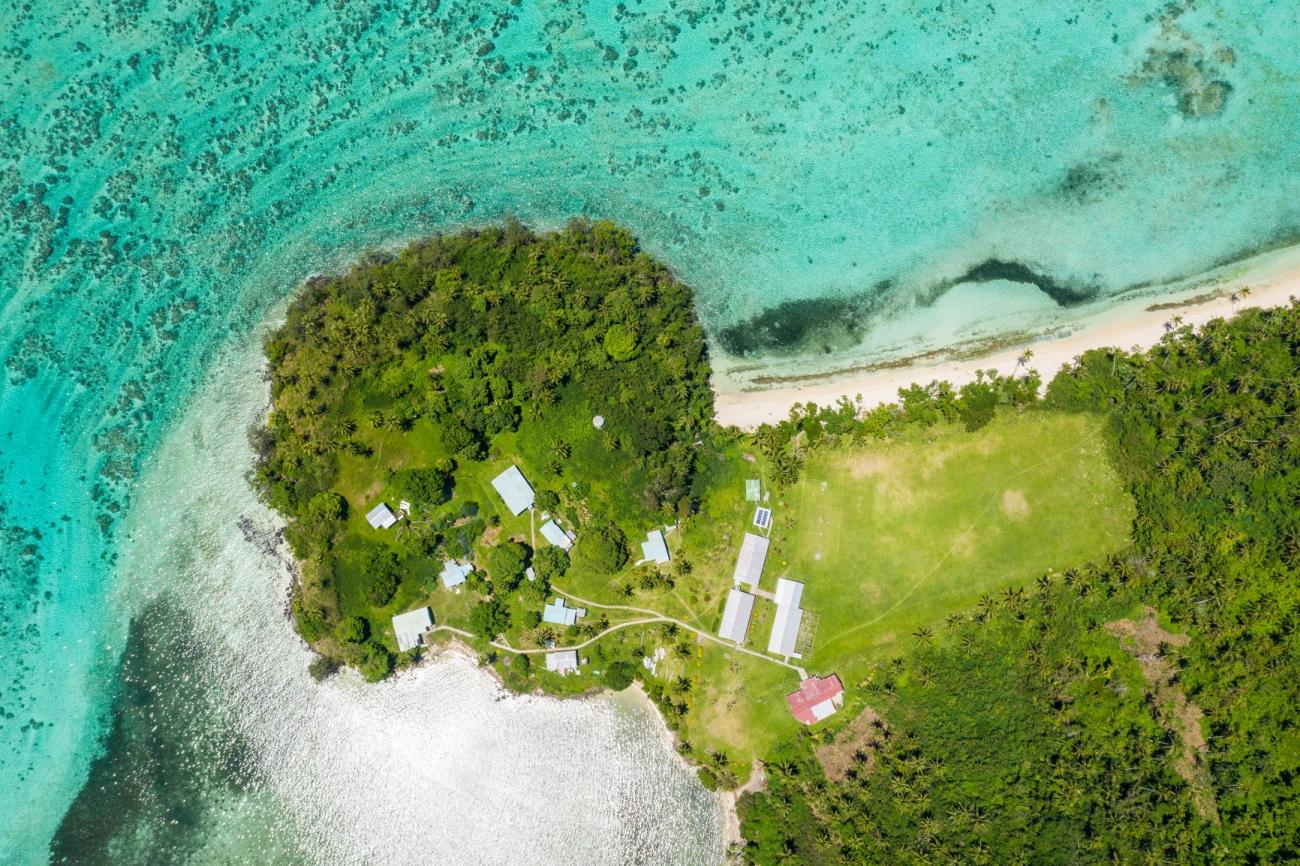A new project to bring together science and communities to protect the future of Pacific coral reefs
Climate change continues to accelerate the decline of coral reefs worldwide, and Pacific island coastal communities and governments are faced with the challenge of understanding and monitoring rapid changing conditions of their reefs, to make informed and appropriate management and conservation decisions to improve reef health and community resilience.
The Pacific Coral Reef Monitoring project is a promising new partnership between the Government of Samoa through its Ministry of Natural Resources and Environment (MNRE), the Government of Australia, the Australian Institute of Marine Science (AIMS) and the Secretariat of the Pacific Regional Environment Programme (SPREP) that will bring together different monitoring methodologies and networks in use in the region, and codesign with relevant regional partners, experts, authorities and communities an inclusive monitoring framework that will provide standards and guidelines and facilitate data storage and use.
The project inception meeting was held earlier this month in Samoa. This is the second phase of the ReefCloud project funded by the Australian government. ReefCloud was co-designed by science and management practitioners across the Pacific and launched at the Our Ocean Conference.
The project will now implement this data platform and build a community of practice in coral reef monitoring, expanding on ReefCloud, the Northern Australian Marine Monitoring Alliance (NAMMA) and current initiatives around data integration and capacity building (especially under the Global Coral Reef Monitoring Network – GCRMN).
CEO of AIMS, Paul Hardisty, said this was about the “democratisation of reef science” to inform decisions and guide the future of the reefs.
The project will not only deliver data to report against the investment in management, it will also engage communities in reef observation and build on their traditional ecological knowledge along with the work of relevant authorities in coastal ecosystem management.
Dr Peter Davies, Coastal and Marine Adviser at SPREP, noted that “the Pacific Coral Reef Monitoring project will contribute to the Pacific Coral Reef Action Plan, and to present the region with the opportunity to accelerate action to conserve and sustainably use our coral reefs through bringing the best available science together with traditional knowledge and management systems.”
The framework design is scheduled by September 2023 and will be trialed in Samoa before the implementation phase in 2024 across the Pacific.
Seumalo Afele Faiilagi, ACEO of MNRE Samoa, said: “this project is extremely relevant and timely with the work currently carried out under the Samoa Ocean Strategy and the national Ocean Management priorities”, with different ministries already working with local communities on coastal ecosystem restoration.
Building on this community engagement and partnerships with AIMS, SPREP, and local institutions, the coordination and leadership role of MNRE and other ministries involved in the Samoa Ocean Strategy will be critical to ensure objectives are met.
Acknowledging the significant investment from the government of Australia in this project, SPREP Deputy Director General, Easter Chu Shing said: “The work in Samoa will create a model for the implementation of standardised monitoring of reefs and engagement of local communities in the Pacific.”
It is also one the first initiatives in implementing the Pacific Coral Reef Action Plan which was endorsed by SPREP Members in September 2021. Increasing the capacity of SPREP Members to manage reefs using the best available science is one the eight key areas for action where regional cooperation can be of great benefit. This project also aligns with the UN Decade of Ocean Science activity that SPREP leads, as it will also bring science and traditional knowledge together, especially through cultural exchanges between Samoa and indigenous traditional owners in Australia.
This story was written by Leanne, originally published at SPREP on 18 October 2022, reposted via PACNEWS.




